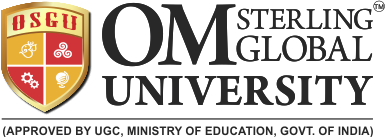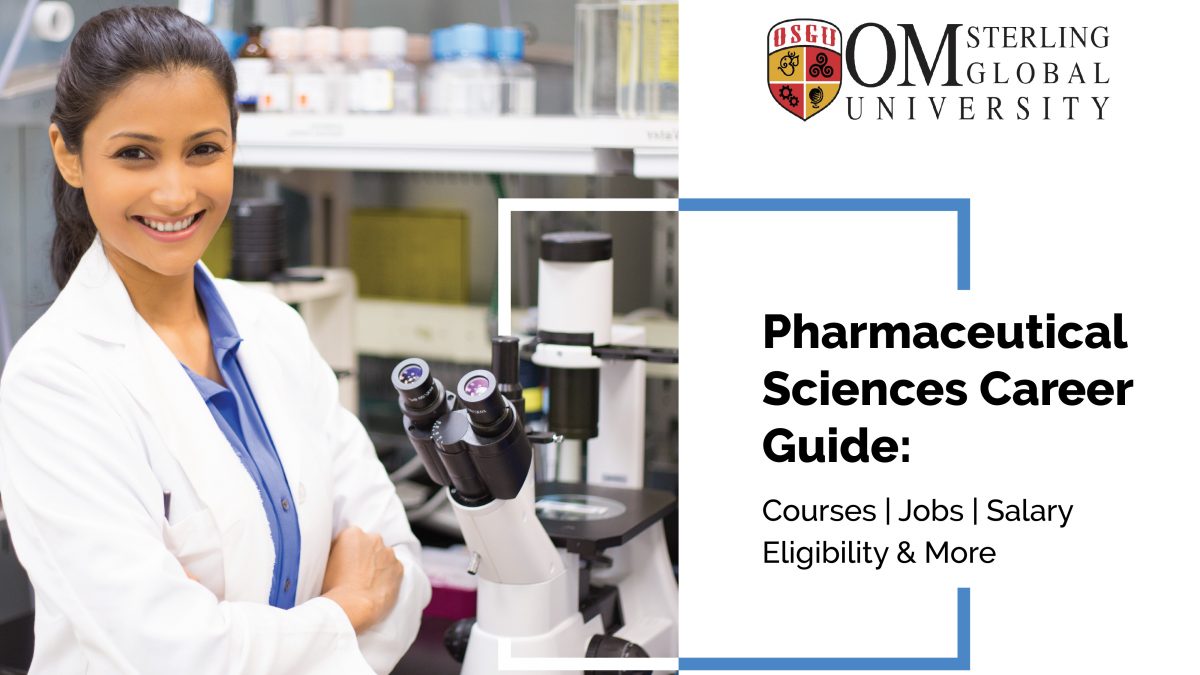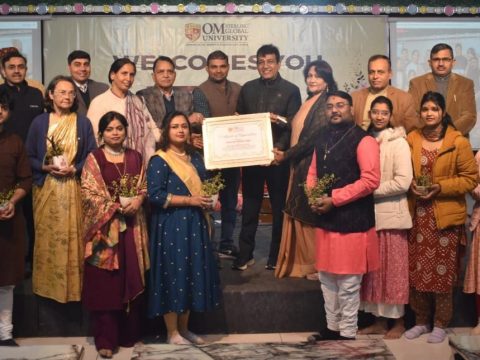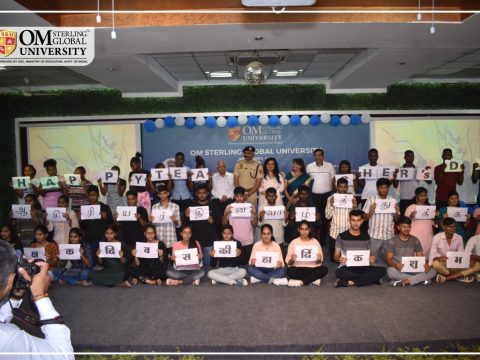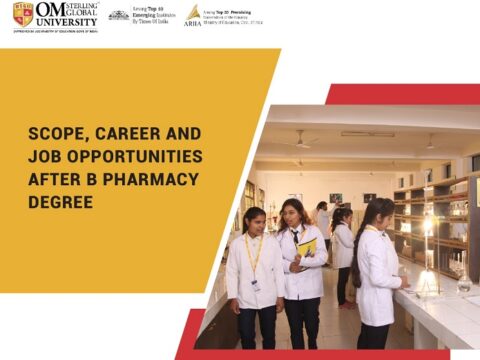What is Pharmacy?
Pharmacy is one of the most demanding and sought-after courses by aspiring students in this modern world. Due to the present pandemic scenario, we have come to our senses that besides engineers, lawyers, scientists, and researchers – society also need personnel who are excellent at the pharmacy. If you are also an aspiring student you will be glad to know that the pharmaceutical sector is growing rapidly at an average rate of 15% per year. This means, that by the end of 2020 the market will reach an astounding $40 billion industry which in turn will open numerous enticing career opportunities for you.
Now, before delving deeper into the main topic let us see the basic introduction to the pharmacy. So, what is the pharmacy? You might have heard this term a lot in your life but you may not have a clear idea about it. Pharmacy is a type of health science that directly connects the scope of chemistry with medical science. Pharmacy is concerned with the production, discovery, disposal and control, effective, optimal, and safe usage of drugs.
A professional who has completed their pharmacy course is known as a pharmacist and they have excellent knowledge of all kinds of drugs. This knowledge includes –side effects, drug’s internal mechanism, and effect on the human body, toxicity, mobility, and interactions.
The pharmacy also deals with understanding and treatment of all types of pathological processes and clinical pharmacists also deal with the evaluation and acquisition of laboratory data and analysis.
The scope of pharmacy is not only limited to the aforementioned points. This includes more and varied traditional roles such as dispensing and compounding medications for the patients and the present-day pharmacy have emerged into healthcare, reviewing medications, clinical practices and services, examining efficacy and safety standards of the prescribed medicines, and rendering all types of possible drug information to the concerned person.
Studying pharmacy has numerous life and career benefits. First of all, you will become an expert on drugs and with your knowledge and consultation, you can easily treat patients. You can help people get well soon and you will have the chance to work directly with the patients. As a pharmacist, you will have numerous career opportunities in myriads of different sectors and become a crucial part of the immense healthcare system.
You will have job flexibility, mobility, and stability; and you can contribute to the medical advancements and innovations with your knowledge. You will have the opportunity to work and learn in top-notch and state-of-the-art medical facilities and laboratories. Last, but not least, you will become a highly esteemed person in your community/society.
In this blog, we are going to see everything there’s to know about pharmacy which includes – pharmacycourses, scope, career, benefits, trends, eligibility, exam, and more.
An Overview of Pharmaceutical Courses
An aspiring student can opt to pursue undergraduate, postgraduate, or doctoral courses in pharmacy depending upon the present learning phases of a student. If you have just cleared your 10th examination, you can apply for a diploma degree. After clearing your 12th or 10+2 examination an undergraduate course in pharmacy will be perfect for you. Here you will be learning and pursuing a bachelor’s degree. Now, if you have completed your bachelor’s degree you can go for higher studies and opt for a master’s degree via postgraduate programs and finally if you have completed your master’s degree you can go for a doctoral degree which is the highest phase in the pursuit of excellence in pharmacy.
Every degree has a benefit of its own. For obvious reasons, you can’t directly apply for a master’s degree after completing your 10+2 examination. Every degree has a value of its own for example, during the bachelor’s degree you will learn the basics of pharmacy and can apply the attained knowledge for practical use. When you are pursuing a master’s degree you will be learning the advanced theories concerning pharmaceutical science and while studying the doctoral degree you will be acquainted with the research and analysis aspects of pharmacy.
In further sections of this blog, we will be covering in detail about the pharmaceutical courses, scope, career, benefits, trends, eligibility, exam,and more.
Pharmacy Courses Types/Levels
As discusses in the earlier section of the blog, depending on your learning curve you can apply for a diploma, undergraduate, postgraduate, or doctoral degree.
So, let us see the available pharmacy courses for an aspiring student.
- Diploma Courses: Diploma in Pharmacy or D. Pharma
- Undergraduate Courses: Bachelor of Pharmacy or B. Pharma
- Postgraduate Courses: Master of Pharmacy or M. Pharma
- Doctoral Courses: Phil in Pharmacy and Ph.D. in Pharmacy
PS: A diploma degree is generally a 2-year degree, an undergraduate degree requires 4-year of study, a master’s degree demands 2 years of study and finally, a doctoral degree will need 3 years for completion.
Now, let us see all these in detail.
1. Diploma Courses in Pharmacy
A diploma degree in pharmacy is a 2-year fulltime course for aspiring students. The course is diligently crafted to prepare the candidates for working under a licensed pharmacist, community pharmacists, or any kind of Pharma-related field.
Here is a list of few diploma courses that an aspiring student can pursue
- Diploma in Pharmacy
- Diploma in Pharmaceutical Management
- Diploma in Veterinary Pharmacy
- PGDM in Pharmaceutical Management
- Post Graduate Diploma in Pharmacovigilance
2. UG Courses in Pharmacy
A Bachelor of Pharmacy also known as B. Pharma, Pharma B. of BS Pharma is a type of undergraduate program in the domain of pharmaceutical science. It demands 4 years of study. In many countries including India, this degree serves as a prerequisite for practicing pharmacy or becoming a pharmacist.
Here is a list of few undergraduate courses that an aspiring student can pursue
- Pharma
- Pharma in Pharmaceutical Chemistry
- Bachelor of Pharmacy in Pharmaceutics
- Bachelor of Pharmacy in Pharmacognosy
- Bachelor of Pharmacy in Ayurveda
- Bachelor of Pharmacy in Pharmacology
3. PG Courses in Pharmacy
A master’s degree in pharmacy is concerned with gaining expertise in research, analysis, laboratories, chemistry, and developing medication for general and special use. A postgraduate degree in pharmacy is a 2-year fulltime course.
Here is a list of few postgraduate courses that an aspiring student can pursue
- M.Sc. in Pharmacy
- Master of Pharmacy
- Master of Pharmacy in Bio-pharmaceutics and Pharmacokinetics
- Master of Pharmacy in Biotechnology
- Master of Pharmacy in Clinical Practice and Research
4. Doctoral Courses in Pharmacy
A Ph.D. or M. Phil in Pharmacy is a 3-year fulltime course that is concerned mainly with research, development, and analysis. This course is divided into 6 semesters and students here learn about – designing, production, and development of new drugs and medicines mainly for clinic purposes.
Here is a list of few doctoral courses that an aspiring student can pursue
- Phil Pharmacy
- D. Pharmacy
- D. in Pharmaceutical Biotechnology
- D. in Pharmaceutical Medicine
- D. in Pharmacology
Pharma Courses Eligibility Criteria
As we have already known by now that different types of courses in pharmacy demand different levels of study. So, let us see in detail what the eligibility criteria for pharmacy courses are for different students.
1. Eligibility for Pharmacy Diploma Courses
An eligible candidate for diploma in pharmacy should have cleared their 10th examination with major subjects including – Physics, Chemistry, Mathematics, and Biology.
2. Eligibility for Pharmacy UG Courses
An eligible candidate for undergraduate courses in pharmacy must have completed their 10+2 examination from a recognized board such as ICSE, CBSE, or state board. The aspiring student must have studied Physics, Chemistry, Mathematics, or Biology subjects in their respective schools.
3. Eligibility for Pharmacy PG Courses
An eligible student for postgraduate courses in pharmacy must have completed their bachelor’s degree in pharmacy from a recognized college or university that is affiliated with PCI, i.e. Pharmacy Council of India.
4. Eligibility for Pharmacy Doctoral Courses
An eligible student for doctoral courses in pharmacy must have completed their master’s degree in pharmacy from a recognized college or university that is affiliated with the Pharmacy Council of India.
Pharma Courses Admission
Let us see how a student can get admission to different pharmacy courses such as diploma,postgraduate, undergraduate, and doctoral degrees.
1. Admission for Pharmacy Diploma Courses
A student can secure their admission in a reputed college or university for studying a diploma in pharmacy by appearing in entrance examinations conducted by universities or state-level diploma entrance examinations. Candidates must have passed their 10th examination for appearing in these entrance examinations.
2. Admission for Pharmacy UG Courses
A student can get admission in a reputed college or university for studying undergraduate courses in pharmacy by completing their 10+2 examination. The aspiring student must apply for national or state-level pharmacy entrance examinations. FYI, the national level entrance examination for pharmacy is known as GLAP, i.e. Graduate Pharmacy Aptitude Test.
3. Admission for Pharmacy PG Courses
A student can get admission in a reputed college or university for studying postgraduate courses in pharmacy by completing their bachelor’s degree from a recognized university or a college. They must have cleared any of these entrance examinations – APPGECET, OJEE, HPCET, or BITS. In some colleges, there is another round of personal interview that is made mandatory.
4. Admission for Pharmacy Doctoral Courses
A student can secure their admission in a reputed college or university for studying doctoral courses in pharmacy by completing their master’s degree in pharmacy from a recognized college or university. The student must have cleared any of these entrance examinations – UGC, CSIR, NET, or SLET. Similar to the master’s degree a personal interview is compulsory for admission in doctoral courses.
Salary After Pharma Courses
As we know that different types of courses or degrees in pharmacy renders a different type of education and experience; the salary is also not the same for every course. For example, a master’s degree holder in pharmacy will definitely earn more than a bachelor’s or diploma degree holder. Similarly, a doctorate candidate will be earning more than a master’s degree or bachelor’s degree holder because they have completed the most advanced level of study in pharmacy.
But don’t get upset! With enough experience in the pharmaceutical field,you will also reach the height of success. You just need to have some patience, that’s it. Now, let us see how much a diploma, bachelor’s degree, master’s degree, and a doctorate candidate will be earning after completing their respective courses or degrees.
- The initial salary of a diploma candidate in pharmacy is in between Rs. 20,000 to Rs. 25,000 per month.
- The initial salary of a bachelor’s degree holder in pharmacy lies between Rs. 30,000 to Rs, 40,000 per month.
- The initial salary of a postgraduate candidate in pharmacy lies between Rs. 50,000 to Rs. 65,000 per month.
- The initial salary of a doctorate candidate in pharmacy lies between Rs. 75,000 to Rs. 90,000 per month.
Career Option After Pharma Courses
The career options after completing pharmacy courses are quite wide. For example, if you have completed your doctorate then you can work as a researcher in a reputed drug company and develop modern drugs to cure any disease. If you have completed your diploma then you can work in a medical shop as an assistant or a sales and marketing executive.
Similarly, if you have completed your bachelor’s degree you can work as a clinical research associate, quality control associate, or drug inspector. Last, but not least, if you have completed your master’s degree you can work as a Formulation Development Associate, scientific writer, or a community pharmacist.
Job Opportunities After Pharma Courses
Based on your experience and knowledge in the field of pharmacy or pharmaceutical science you can work as a:
- Hospital Pharmacist
- Medical Representative
- Analytical Chemist
- Sales Executive
- Pharmaceutical Consultant
- Customs Officer
- Drug Therapist
- Drug Store Manager
- Quality Assurance Manager
- Marketing Executive
Pharmacy Courses Curriculum
The curriculum of pharmacy depends upon what are you studying – diploma, bachelor’s course, master’s degree, or doctorate courses. Pharmaceutical Chemistry, Human Anatomy & Physiology, Pharmacology and Toxicology, Drugs Store and Business Management, Hospital and Clinical Pharmacy, Medicinal Biochemistry, Pharmaceutical Inorganic Chemistry, Communication Skills, Pathophysiology and more are a few topics or subjects that are being taught to the pharmacy students.
PS: Kindly make a note that the curriculum is not the same for every college or university. This might change from place to place and from time to time. The aforementioned subjects or topics are mentioned in general and might change accordingly as per the degree a student is pursuing.
Specializations Available In Pharmacy
In India, we have myriads of specializations available in pharmacy or pharmaceutical science. Here is a list of top 5 specializations in pharmacy that a student can pursue according to their choice of interest.
- Nuclear Pharmacy
- Geriatric Pharmacy
- Cardiology Pharmacy
- Critical Care Pharmacy
- Infectious Diseases Pharmacy
Pharmacy Entrance Tests in India
Here is a list of all major state and national-level entrance examinations for the aspiring pharmacy students.
- GUJCET
- Maharashtra State Common Entrance Test
- BITSAT
- AP EAMCET
- TS EAMCET
- NIPER Joint Entrance Exam
- GLA University Entrance Test (GLAET)
- OJEE Post Graduate Admission Test
- BITS Higher Degree Admission Test
- Integral University Entrance Test
- Uttarakhand State Entrance Exam
- Goenka Aptitude Test for Admission
- Manipal University Online Entrance Test
- GLAP
- HPCET
- DHSG University Post Graduate Entrance Test
- OSGU SAT
Scope of Pharmaceutical Courses in India/Abroad
The scope of pharmaceutical courses in India and abroad is huge. Hundreds of thousands of students are trying to enroll themselves in a reputed college or university to study pharmaceutical science because they know after completing the degree they have a great career waiting for them ahead.
You can pursue any specialization you want after completing your bachelor’s or master’s degree. If you are interested, you can go abroad for higher studies or specialization. The demand for good and well-recognized pharmacists is not only in India but in foreign countries as well.
You will be welcomed with open hearts and arms to any sector, i.e. public, private, or government. You can work and make a name for yourself in marketing, research, development, operations, and analysis.
Remember, pharmacy plays a vital role in the healthcare industry and their role in this particular field is irreplaceable. The candidates can accomplish anything with a degree of pharmacy in their hands. And yes, the scope of pharmaceutical courses in India and aboard is going to see an immediate boom amidst the present pandemic situation.
Why Consider Pharmacy Courses?
Here is a list of top 5 reasons to consider a course in pharmacy
- Be a part of discoveries/innovations in medical therapy
- Flexible career choice
- Passion to help the community
- Become a part of the healthcare industry
- Build better relationships with patients
Required Skillset for Pharma Courses
Here is a list of all major skillsets required for a student to complete a degree in pharmaceutical science.
- Communication skills
- Interpersonal skills
- Determinant
- Consistency
- Adapt to dynamic situations
- Sharp memory
- Medical ethics
- Medical writing
- Technical & counseling skills
- Decision-making skills
- Problem-solving skills
Top Recruiters for Pharmacy Graduates
A pharmacy student has the opportunity to work for top medical MNCs in the world.Here is a list of top 10 recruiters for pharmacy graduates
- Sun Pharmaceuticals
- Mankind Pharma
- Pfizer
- GlaxoSmithKline
- Aurobindo Pharma
- Cipla
- Piramal
- Amgen
- Johnson & Johnson
- Biocon
So, now you know every possible detail about pharmacy there is to know! If you are looking for a lucrative career concerning your community, pharmacy is perfect for you. The gamut of pharmacy or pharmaceutical science is increasing as we speak and in the impending future, the scope of pharmacy will be limitless as we have seen that the world needs more and better pharmacists along with engineers, doctors, and lawyers. Pursue a degree in pharmacy and enjoy a great career ahead without limitation.
Why Study Pharmacy in Om Sterling Global University?
Study B. Pharma or M. Sc. in Pharma and get an opportunity to work with premier medicine companies in this world. With our 100+ recruiters, you will have the opportunity to work in your dream company. We also have a team of 200+ academicians who will make you ready to face all modern world challenges and requirements with ease. Join us to revolutionize the medical world with your skills and expertise. Let us assist you!

